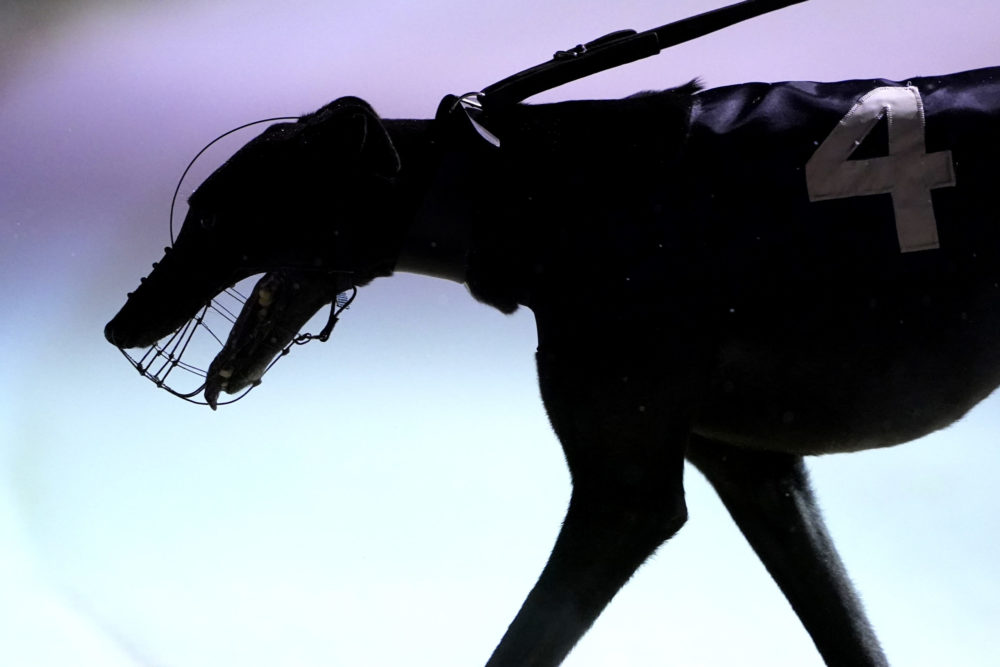Welsh Government considers plans for phased ban on greyhound racing

Chris Haines, ICNN Senedd reporter
A phased ban of greyhound racing is being considered as part of newly published plans to improve animal welfare in Wales.
The Welsh Government has published a consultation on improving animal welfare amid concerns that some areas are unregulated or regulations are no longer fit for purpose.
Unlicensed areas include animal sanctuaries as well as dog walking and grooming services.
Ministers are proposing to licence racing greyhound owners, keepers and trainers, and the consultation includes a call for evidence for or against a potential ban on dog racing.
Valley Greyhound Stadium in Ystrad Mynach is the only racing track in Wales and a petition to the Senedd on banning the sport received more than 35,000 signatures.
‘Hot issue’
Lesley Griffiths, Wales’ rural affairs minister, said greyhound racing remains a hot issue
She said: “The consultation fulfils my commitment to the petitions committee in including a question on potential licensing for owners, keepers and trainers of racing dogs, and seeking submissions of evidence for or against consideration of a potential phased ban in future.
“There are strong views on all sides and this consultation will help us to assess and consider all potential actions and build a crucial evidence base before any conclusions are drawn.
“Any future regulatory measures or changes must be assessed on evidence and would be subject to further consultation.”
Jane Dodds, the leader of the Lib Dems in Wales, backed a ban on greyhound racing – saying: “Make no mistake, greyhound racing exists for one single purpose: money.
“Money from the large amounts of bets placed on the suffering of these poor animals. We are a nation that cares for animals and sports like this have no place in Wales.”
‘Traumatised’
Ms Dodds’ family had a rescue greyhound, called Arthur, who died in February.
“A sweet and kind soul,” she said. “He had been in and around the racetrack up to the age of six then spent the next 18 months in a specialist greyhound rescue centre alongside 65 other dogs, before we adopted him.
“It was clear from the moment we took him home, his time on the track had traumatised him.
“He would freeze for 20 minutes at a time when he heard a loud noise and would often refuse to go into the space between our front and inner door, as it would remind him of those cruel years spent in the trap before a race.
“His time racing had also inflicted physical damages – he had suffered with a neck injury and raw joints and unfortunately when his back legs went, we were forced to say goodbye to him.
“Arthur, like so many other greyhounds, was a sweet and loving pet who became a part of our family. And in his memory, I am calling for a ban on this horrific sport that inflicts so much pain on such precious and gentle dogs.”
‘Unintended consequences’
Samuel Kurtz, the Conservatives’ shadow rural affairs minister, who grew up on a family farm, broadly welcomed the plans but raised concerns about unintended consequences.
However, he warned: “There needs to be more clarity outlined on when a licence is required.
“A young person, for example, may walk their neighbour’s dog for some extra pocket money – will they now need to seek a licence to continue?
“Upon completion of the consultation, I hope the Labour government listens to the public before making any definitive changes that adversely affect stakeholders and the public.”
Llŷr Gruffydd, Plaid Cymru’s shadow minister, said: “We acknowledge the need to ensure all aspects of animal welfare policy are up to date and fit for purpose.
“Plaid Cymru therefore welcomes this consultation as a basis for discussion on strengthening how animal activities are regulated in Wales.”
Members of the public can have their say on the proposals by responding to the 12-week consultation, which runs until March 1.
Support our Nation today
For the price of a cup of coffee a month you can help us create an independent, not-for-profit, national news service for the people of Wales, by the people of Wales.








I may be ignorant and I’m sure someone will wade in. Many dogs work for a living, police dogs whether general working or specialist, customs, military, aid dogs, farm dogs but it seems that Greyhound rescue has a much higher profile, so I assume need – can anyone explain this?
It’s nice to see the government caring about animal cruelty. I hope they’re next step will be human cruelty. Allowing they’re population to suffer with a health service that is on its knees.